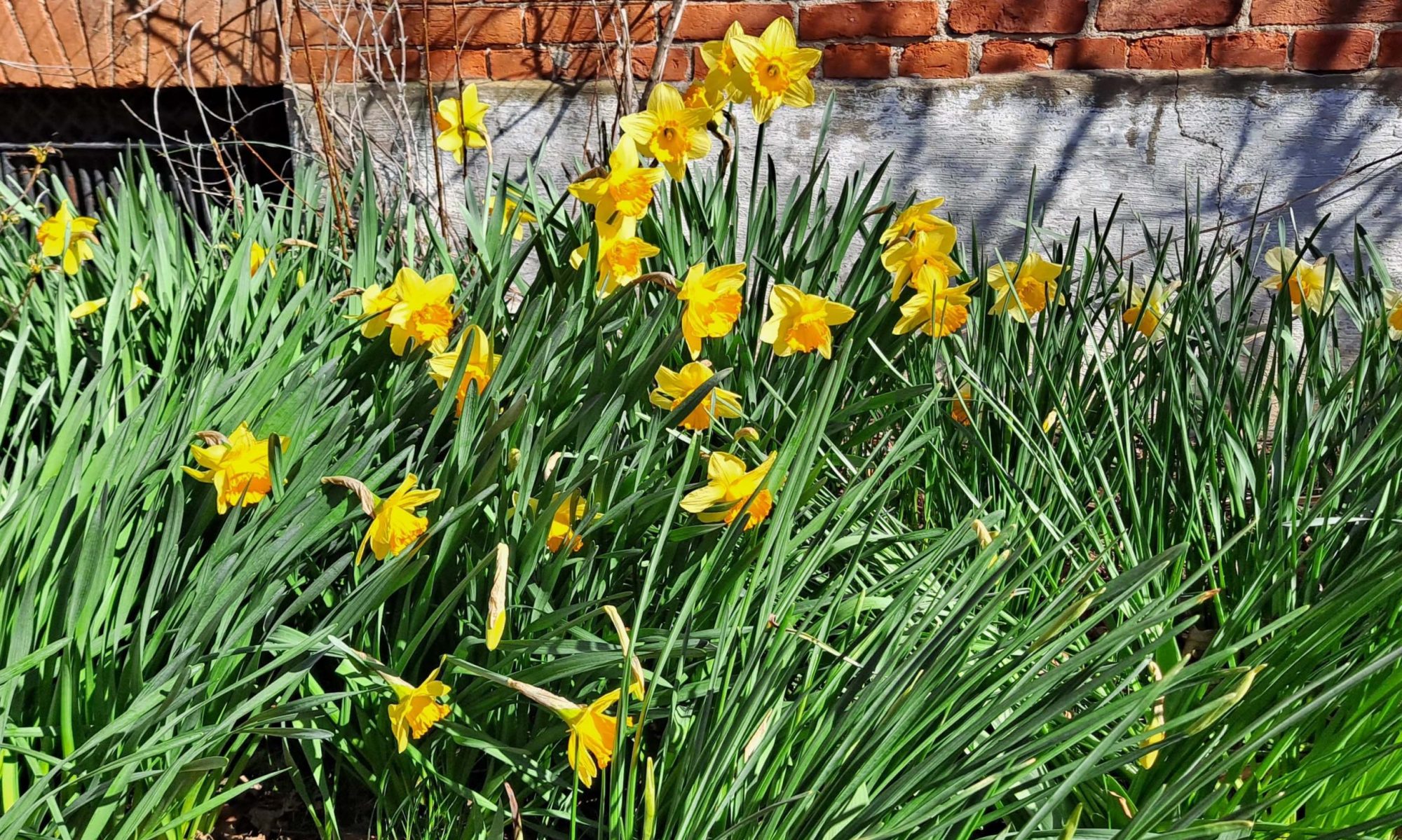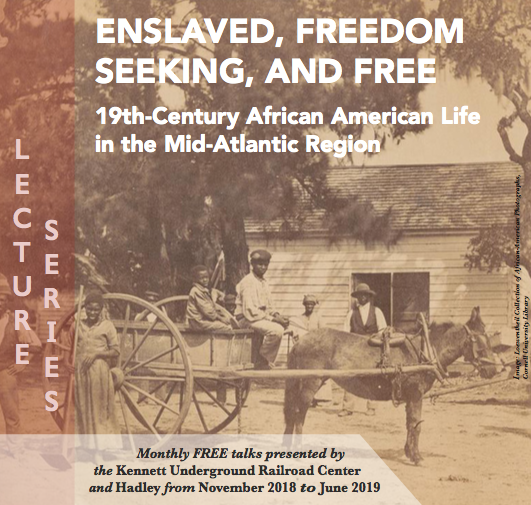Kennett Underground Railroad Center (KURC) and Hadley announce a joint effort to bring eminent scholars and authors from New England, Pennsylvania, and Delaware to the Kennett area for a series of eight lectures. All lectures are free. They will occur once each month from November 2018 through June 2019. Seating is limited and reservations are requested.

Saturday, March 23, 2019, 2:00 PM
Harriet Tubman
Lecture by Kate Clifford Larson,Author of Bound for the Promised Land: Harriet Tubman, Portrait of an American Hero
Kennett Friends Meeting
125 West Sickle Street, Kennett Square, PA
Harriet Tubman is one of the giants of American history—a fearless visionary who led scores of her fellow enslaved people to freedom and battled courageously behind enemy lines during the Civil War. Born into slavery on the Eastern Shore of Maryland, Tubman suffered horrific abuse and endured painful separations from her family. While still a young woman she embarked on a perilous journey of self-liberation—and then she returned to liberate family and friends, tapping into the Underground Railroad. After the Civil War, Tubman worked for civil rights and women’s suffrage, in spite of racist politicians and suffragists who marginalized her contributions. Harriet Tubman, her life and her work, remains an inspiration to all who value freedom. Larson reveals the truth behind the myth and shares some of her remarkable research that unearthed Tubman’s real life story.
Saturday, April 6, 2019, 2:00 PM
The Other Side: Feminism, Publishing, and Law in the 19th-Century Abolitionist Struggle
Lecture by Dr. Emma Lapsansky-Werner, Professor Emeritus of Haverford College
London Grove Friends Meeting
500 W. Street Road, Kennett Square, PA
Mary Ann Shadd Cary, the first black woman in North America to edit and publish a newspaper, was born to free abolitionist parents in northern Delaware. Educated among Quakers in Pennsylvania’s Chester County, she moved with her family to southern Canada after the Compromise of 1850 ramped up the Underground Railroad resistance movement. From that vantage point, “on the other side” from slave culture, she spent more than a decade teaching, publishing, and serving as a hub of information exchange with other abolitionists and feminists—Frederick Douglass, Susan B. Anthony, Benjamin Coates, Martin Delany, and a host of others who dreamed of a better world. Then she went to law school. This talk will explore how some nineteenth-century thinkers envisioned not just the “ending of slavery” but also a paradigm for after slavery’s end.
Saturday, May 4, 2019, 2:00 PM
Frederick Douglass, Heroic Slave and Madison Washington: The Embodied Divine
Lecture by Denise Burgher, Chair of the Community and Church Outreach Committee for the Colored Conventions Project
New Garden UAME Church
309 East Linden Street, Kennett Square, PA
Though popularly embraced as a secular humanist, Frederick Douglass thought, wrote, and lived as a committed Christian. Moreover, his only fictional work, The Heroic Slave, should be considered a prototypical Black Liberation Theology text. Through a careful foregrounding of Douglass’s religious life, an analysis of the form, functions, and narrative conventions of Evangelical conversion narratives in antebellum America, and a grounding in Douglass’s use of the same along with a close reading of Heroic Slave, I will demonstrate the ways that Douglass, writing as a committed Christian, embraced and transcended the white Evangelical conversion narrative form, used aspects of spiritual biographies and sentiment, and wrote a Black Abolitionist conversion narrative. Indeed, understanding how a serious consideration of Douglass’s Christian faith has a marked impact on and in his work allows for a richer, more nuanced, radically religious and political reading of his text Heroic Slave.
For the full series and for more information, please visit our website at kennettundergroundrr.org

